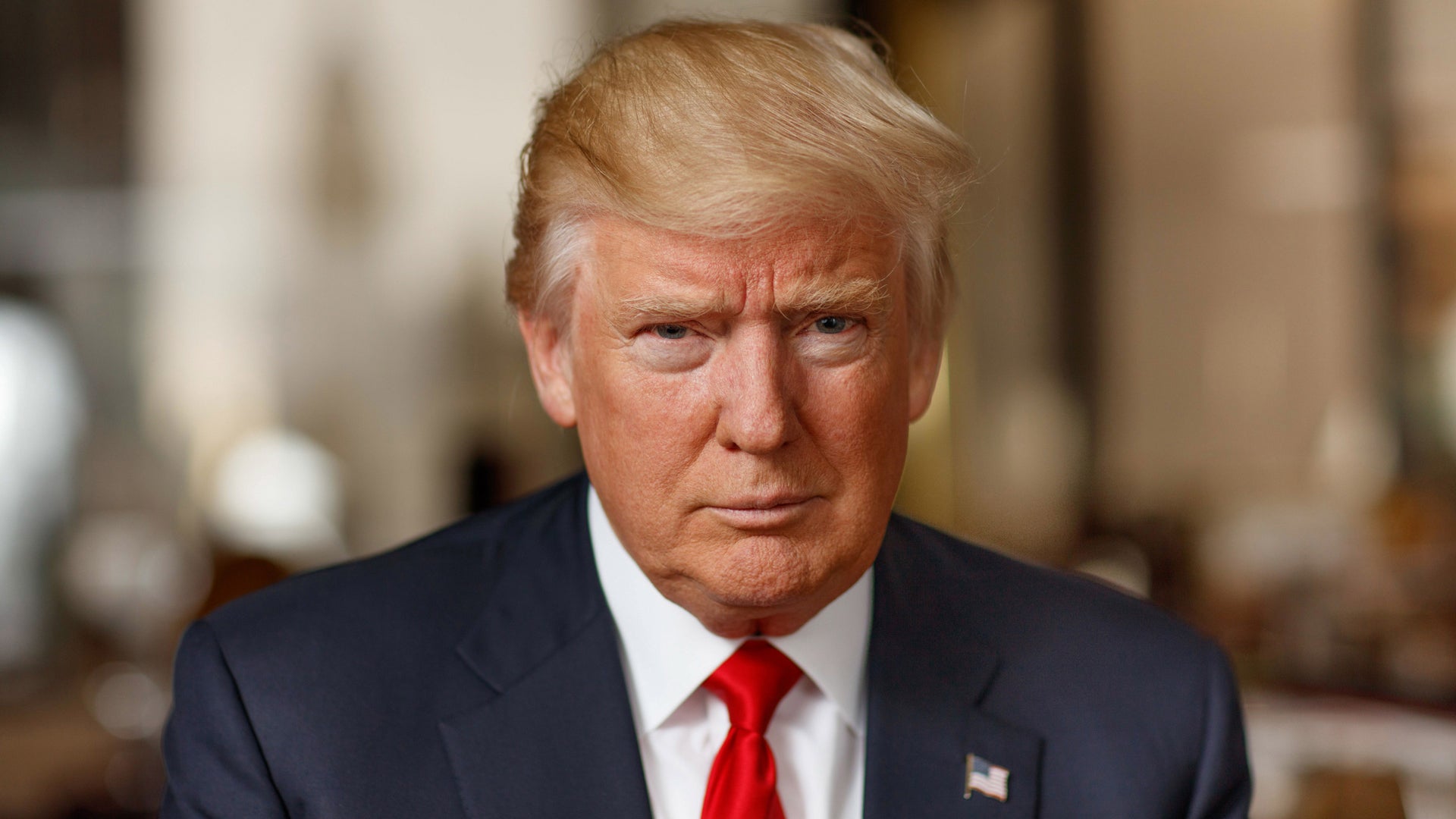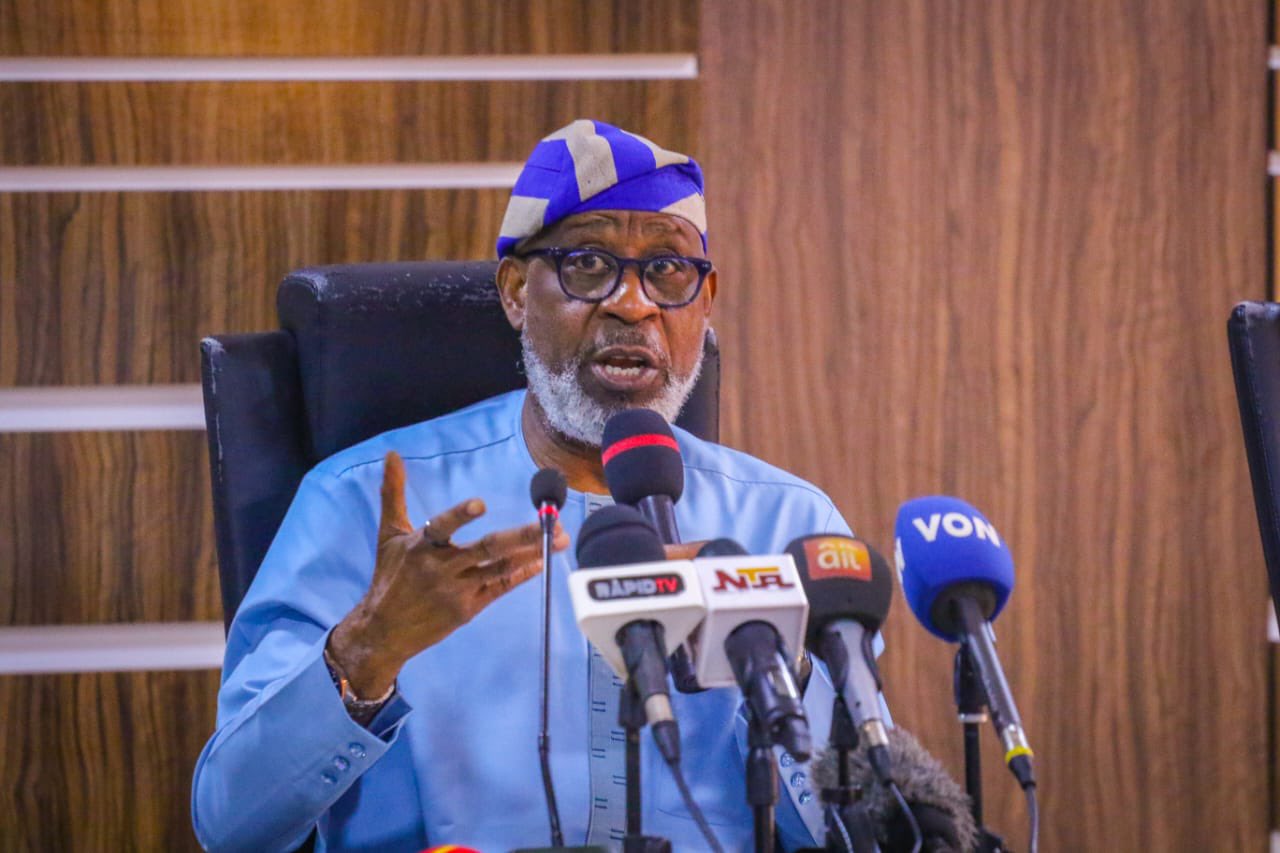After Slamming 14% Tariff, US Kicks against Nigeria’s Import Ban on 25 Product Categories
After Slamming 14% Tariff, US Kicks against Nigeria’s Import Ban on 25 Product Categories
•Says customs practices constitute major obstacles to trade
•Declares procurement processes corrupt, non-transparent, picks holes in maritime administration
•Hails CBN for collapsing multiple official exchange rates into single window, says funds repatriation remains barrier to investment
•White House says 104 % tariff on China will take effect today
Emmanuel Addeh and James Emejo in Abuja
It emerged yesterday that the 14 percent tariff recently imposed by the United States President, Donald Trump on Nigeria was mainly in protest of the latter’s import ban on 25 different product categories which had impacted US exporters.
The Office of United States Trade Representative (USTR) had noted that the ban, particularly in agriculture, pharmaceuticals, beverages, and consumer goods, negatively impacted US trade balance with Nigeria.
This is just as the Trump announced that a 104 percent tariff on goods from China will go into effect today following China’s retaliatory 34% import fee on American products.
Writing yesterday on its X handle, the US Office condemned Nigeria’s restrictions on beef, pork, poultry, fruit juices, medicaments, and spirits, a development which limited US market access and reduced export opportunities.
It stated, “These policies create significant trade barriers that lead to lost revenue for U.S. businesses looking to expand in the Nigerian market.”
The USTR had on March 31, submitted the 2025 National Trade Estimate (NTE) to Trump and US Congress.
The NTE is an annual report detailing foreign trade barriers faced by US exporters and USTR’s efforts to reduce those barriers.
Trump’s global tariff war is reportedly rooted in these trade disparities against the US, and the findings underscored his America First trade policy as well as the president’s 2025 trade policy agenda.
The NTE report seen by THISDAY alleged that the Nigeria Customs Service (NCS) had continued to ban the import of 25 different product categories.
It listed currently prohibited items to include bird eggs, cocoa butter, powder, and cakes; pork, beef, live or dead birds, refined vegetable oil and fats.
Others according to the report are bottled water, spaghetti and other noodles; fruit juice in retail packs, tomatoes, tomato ketchup, and tomato sauces; nonalcoholic beverages (excluding energy drinks), bagged cement, beer and stout, all medicaments falling under Harmonised System headings 3003 and 3004; soaps and detergents, mosquito repellant coils, paper board, used motor vehicles more than 12 years old, ball point pens, most types of footwear, bags and suitcases, used clothing, and certain spirits and alcohols.
The report also pointed to non-tariff, electronic commerce/digital, services and technical barriers trade barriers including sanitary and phytosanitary restrictions – and raised concerns about maritime administration.
Among other things, the report further alleged that the NCS’ practices had continued to present major obstacles to trade.
It stated, “Importers report inconsistent application of customs regulations; lengthy clearance procedures, often due to outdated manual processing systems; and corruption. These factors sometimes contribute to product deterioration and result in significant losses for importers of perishable goods.”
The NTE also raised concerns that disputes among public agencies over the interpretation of regulations often caused delays, adding that frequent changes in customs guidelines slow the movement of goods through Nigerian ports.
The US trade agency further lamented that though the customs authority had attempted to automate its processes, many basic customs procedures are still paper-based and require an unreasonably long time to complete.
It pointed out that “On September 2, 2020, the Nigerian Government approved a $3.1 billion customs modernisation project that would include the automation of paper-based customs processes.
“The project was to be completed in 36 months and executed via a public-private partnership through a 20-year concession. This project has experienced implementation delays and is the subject of domestic litigation.”
Continuing, it stated, “Nigeria requires that all food, drug, cosmetic, and pesticide imports be accompanied by certificates from manufacturers, third-party certifiers, or exporters’ national authorities, depending on the product.
“These certificates must attest that the product is safe for human use and consumption, even though certificate-issuing authorities do not inspect every shipment of exported food product.
“However, Nigeria’s limited capacity to review certificates, carry out inspections, and conduct testing has resulted in delays in the clearance of food imports and has diverted imports to informal channels.
“Since 2019, the United States has sought to negotiate import permits for the export of several categories of U.S. food and agricultural products. Nigeria has been slow to approve these requests.”
The USTR report further expressed concerns by US companies about corruption and a lack of transparency in the country’s procurement processes.
It added, “The Public Procurement Act of 2007 established the Bureau of Public Procurement (BPP) as the regulatory authority responsible for the monitoring and oversight of public procurement in Nigeria.
“Only majority Nigerian-owned companies may bid on procurements above 2.5 million (approximately $1,600 thousand), up to 100 million (approximately $64,000 thousand) for goods, and up to 1 billion (approximately $640,000 thousand) for services and works. “Above those thresholds, both majority foreign-owned and majority Nigerian-owned companies may engage in competitive bidding.
“Nigerian Government agencies do not always follow procurement guidelines, despite the requirement that no procurement proceedings are to be formalised until the procuring entity has ensured that funds are available to meet the obligations and has obtained a Certificate of ‘No Objection’ to Contract Award from the BPP.
“Executive Order 5 of 2018 added restrictions and obligations for public procurement related to science, engineering, and technology. The order is designed to bolster the Public Procurement Act of 2007 and directs government offices to grant preference to Nigerian suppliers.”
It said, “Foreign companies may be subject to requirements that include the use of a local partner firm or requirement to join a consortium.
Nigeria has made modest progress on its pledge to conduct open and competitive bidding processes for government procurement.
“The BPP has made a variety of procurement procedures and bidding information publicly available on its website.
“However, Nigeria’s National Assembly operates its own procurement process that is not subject to BPP oversight and lacks transparency. Although U.S. companies have won contracts in various sectors, difficulties in receiving payments are common and can discourage firms from bidding.
“Foreign government-subsidised financing arrangements appear in some cases to be a crucial factor in the award of government procurements. Nigeria is neither a Party to the WTO Agreement on Government Procurement (GPA), nor an observer to the WTO Committee on Government Procurement.”
The US also raised concerns over alleged Foreign Exchange (FX) controls, noting that liquidity limitations have negatively impacted investment as well as trade.
It said restrictive measures have hampered some US companies’ abilities to import finished or semi-finished goods for use in their Nigerian operations.
According to the report, “Moreover, Nigeria’s policies have increased challenges for projects developed with international financing that include U.S. dollar-denominated debt obligations, as borrowers have struggled to secure the necessary foreign exchange to meet those obligations.
“In addition, Nigerian importers report they sometimes must agree to schemes to produce domestically in order to be allocated import permits by the government and to access foreign exchange through the Nigerian Foreign Exchange Market to source similar products from abroad.
“However, the Nigerian Government has taken steps to address these limitations. On June 14, 2023, the Central Bank of Nigeria (CBN) introduced a market-based foreign exchange regime, collapsing its multiple official exchange rates into one, the “Nigerian Foreign Exchange Market.”
“On October 13, 2023, the CBN reversed its eight-year-old restriction on access to U.S. dollars for the importation of 43 items such as rice, meat, poultry, vegetable oil, fertilizer, dairy products, maize, sugar, and several steel products (although, as noted in the Import Bans subsection, some of these products remain on the Nigeria Customs Service’s Prohibited Items List).
“The CBN had accrued an estimated $7 billion in backlog of foreign currency orders for companies trying to repatriate their earnings over the past years.
“In March 20, 2024, the CBN announced it had settled $4.6 billion of claims that had been ‘validated’ by an audit conducted by an international auditing firm on behalf of the CBN. The remaining estimated $2.4 billion of backlog was still under investigation by the CBN for their validity as of December 31, 2024.
“Despite the liberalisation of the foreign exchange market, the CBN maintains stringent controls over the repatriation of funds. Companies report that the approval process for the repatriation of funds remains a significant barrier to investment by U.S. entities, as it is frequently subject to delays and denials.”
White House Says 104 %Tariff on China Will Take Effect Today
Meanwhile, the U.S. will impose a 104% tariff on China beginning at 12:01 a.m. EDT Wednesday, White House press secretary Karoline Leavitt said in a briefing yesterday.
“Starting tomorrow, (today) the White House will begin collecting steep levies on imported goods from China, as President Trump follows through on a threat issued against Beijing on Truth Social Monday.
Mr. Trump on Monday threatened to slap an additional 50% tariff on imports from China after the nation said it would impose a 34% import fee on American products. China’s retaliatory move came after Mr. Trump said China would face a 34% tariff on all goods imported to the U.S., a rate tailored specifically to China.
Mr. Trump also said in his Truth Social post that the U.S. would cease all negotiations with China, while proceeding with trade talks with other nations. China’s commerce ministry on Tuesday asserted that Beijing would “fight to the end” and take countermeasures against the U.S. if Mr. Trump did not walk back his latest threat.
In the press briefing Tuesday, Leavitt said retaliatory tariffs on roughly 90 countries were designed to open negotiations with the U.S.’s trade partners.
“To countries around the world, bring us your best offers and he will listen,” Leavitt said of Mr. Trump. “Deals will only be made if they benefit American workers.”
She added that 70 nations have already approached the White House to begin negotiations and presumably lower their assigned tariff rates in exchange for concessions that Mr. Trump deems beneficial to the U.S.
“On the other hand, countries like China, who have chosen to retaliate, and try to double down on their mistreatment of American workers are making a mistake,” Leavitt said.
She also reiterated Mr. Trump’s “firm belief” that the U.S. needs to prioritize the bringing of manufacturing back to the U.S.
“President Trump has a spine of steel and will not break,” she said, later adding that “a strong America cannot be solely dependent on foreign countries for our food, medicines and critical minerals.”
Critics of Mr. Trump’s tariff agenda, including some prominent Wall Street figures, say levies could stoke inflation and slow the U.S. economy.
“Whether or not the menu of tariffs causes a recession remains in question, but it will slow down growth,” JPMorgan Chase CEO Jamie Dimon said in his annual letter to shareholders Monday.
Economists are also raising the odds of the U.S. economy entering a recession on Mr. Trump’s reciprocal tariff announcement, with Goldman Sachs analysts on Monday putting the odds of the economy entering a recession within the next 12 months at at 45%, up from 35% in its previous forecast.
Goldman cited tightening financial conditions, consumer boycotts of U.S. goods and uncertainty over the Trump administration’s economic policies, saying those factors are “likely to depress capital spending” by more than the bank had previously forecast.
•Says customs practices constitute major obstacles to trade •Declares procurement processes corrupt, non-transparent, picks holes in maritime administration •Hails CBN for collapsing multiple official exchange rates into single window, says



